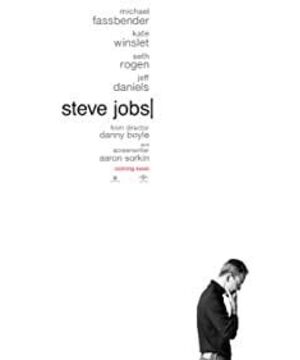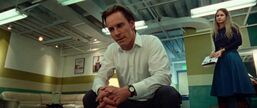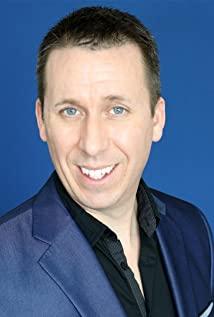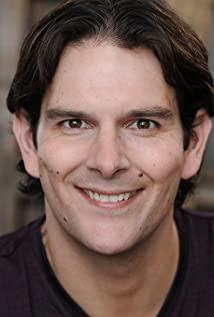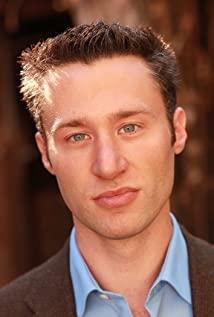The first thing to mention is that Fassbender's appearance is completely different from Jobs (the former's handsomeness factor is obviously N times higher than that of the latter!). Some time ago, I watched Fassbender's version of "Jane Eyre", and Rochester in the movie is also completely different from the original handsomeness. As a result, the similarity of this casting finally seems to me: Mr. The shadow is always dangling on Jobs.
As the number one male protagonist of the most classic romance drama, Mr. Rochester's "daddy taste" with his own domineering president seems to be better in the original work. In contrast, Fassbender's performance in the movie is very tender and considerate, and he can be said to be benevolent to Bertha. Unfortunately, the actress who plays the heroine has a facial paralysis throughout the whole process, and she can't act at all. It embodies a weak sense of bitterness and hatred. Compared with the first-person narrative novels - Jane Eyre in the book is a person with a sensitive heart, rich emotions and rich expressions. Under the arrangement/trick of fate (the author), she peculiarly refused to welcome Rochester's strong "daddy taste". In "Steve Jobs", commercial success is, to a certain extent, paradoxically similar to Jane Eyre's attitude towards Rochester - on the surface, it seems to dislike the stinky temper and weird character of the "daddy" male protagonist, But in fact, it has always been fascinated by it.
It might be interesting to compare Mr. Rochester and Jobs in the movie.
In the film, Jobs was ruthless to his ex-girlfriend and treated illegitimate daughters, initially showing a kind of extreme cold-blooded ruthlessness. In contrast, Mr. Rochester seemed to have a lot of humanity. Although he tried to deny Bertha's existence in front of everyone, he at least fulfilled his basic maintenance obligations and hired a special person to take care of her food and clothing.
Both are equally confident and have no confidence in most people. Demonstrated extreme autocracy in his own field, comparable to a tyrant. The flip side of this extreme self-confidence and lack of trust in everyone is extreme paranoia – the lobbying of others is unmoved, because there is a set of hard judgment standards inside, outsiders cannot shake.
Perhaps due to harsh social life and business experience, both have no shame in fraudulent behavior. Jobs could launch a so-called new product without an OS by holding an exaggerated press conference, touting it as a transformative technological innovation, deceiving audiences with machines with larger memory, and boasting about the fake performance of Mackintosh. Mr. Rochester could also pretend to be unmarried, and Enron deceived Jane Eyre, who was not in the world, into marrying him.
In romance novels, the stylized happy ending is the final marriage of the male and female protagonists. Even though Rochester lost his house and lost his arm and his eyesight due to the fire, in the routine of romance novels, he finally captured the love of the object of desire, Jane Eyre, without any risk. In a commercial biopic, the happy ending is undoubtedly the protagonist's family and career double harvest - Steve Jobs achieved a reconciliation with his illegitimate daughter, and at the same time, he also gradually moved towards great commercial success.
In real life, people like Mr. Rochester and Jobs are undoubtedly extremely annoying. But in the fictional world of novels and movies, their annoying places can be looked at harmlessly. As a result, the annoying character and character are completely forgiven by the plot setting and the reader audience to a certain extent. For the expectant audience of genre films, what they always need is the successful completion of the program-the perfection of love, the happiness of the family, the success of the career, in short, the inspirational life of a successful person. This must also be the logic of general cool texts and cool films.
View more about Steve Jobs reviews


